 |  |
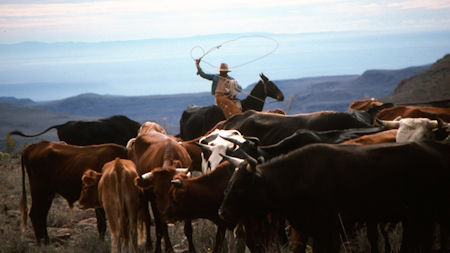
The sun beats down on the rugged terrain of Baja California, a land steeped in history and raw beauty. Amidst this unforgiving landscape, a unique culture has thrived for centuries: the ranchos. These remote settlements, home to hardy ranchers who have mastered the art of survival, have shaped the region’s identity. Corazón Vaquero, a poignant documentary directed by Cody McClintock, delves into the heart of these ranchos, capturing their timeless spirit and the challenges they face in the modern world.
McClintock’s personal connection to Baja California runs deep. His father, Garry, was a renowned saddle maker and was drawn to the region’s rich history and the unique skills of its artisans. His father’s lifelong fascination ignited a passion in Cody, leading him to embark on a cinematic journey to document the vanishing traditions of the ranchos.
“My dad was one of the first saddle makers in Southern California,” explained Cody. But that wasn’t the initial plan.
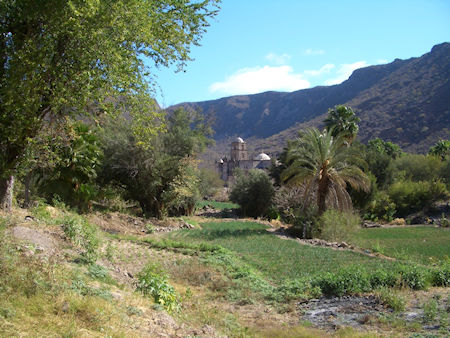
Garry McClintock had planned on being a dentist, but his life fell apart when his parents got divorced. So, like many who seek their own life’s direction, Garry set off in a VW van to Mexico. While on the mainland, up in the Sierra, he met a man who was making belts and candles and it sparked something in him. He returned to Southern California and started what would become a lifelong journey in leather.
The deeper Garry McClintock got into the saddle making that became his main focus, the more he found himself fascinated by the history of the saddle and its origin. “He had a lifelong interest in where the saddle came from, how it changed, and he began to realize that a lot of the history books presented a whitewashed history,” shared Cody, telling his father’s story. He realized that the ranches were where the actual history was preserved.
So, the elder McClintock began to take multiple trips a year, researching the stories, going back into the depth of the mountains. What he found was a huge tradition that already existed in southern Baja on these isolated ranchos. It is the story of life in these remote ranchos that son Cody brought to life in Corazón Vaquero.
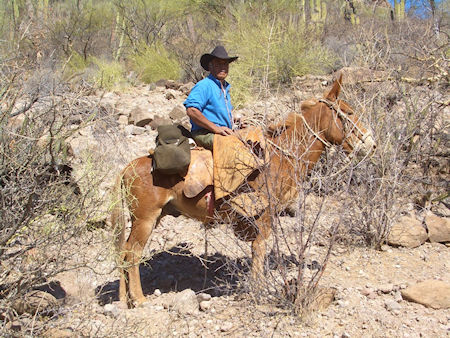
The film paints a vivid picture of the ranchers’ lives, showcasing their unwavering dedication to their craft and their deep-rooted connection to the land. From the art of horsemanship to the meticulous construction of saddles and other tools, these skilled artisans have passed down their knowledge through generations. Their lives are a testament to the enduring human spirit, a testament to the power of tradition.
One of the most striking aspects of Corazón Vaquero is its exploration of the historical significance of the ranchos. The region’s early settlers, many of them Spanish sailors and missionaries, brought with them a rich cultural heritage that has been interwoven with the indigenous traditions of the area. The ranchers, as direct descendants of these pioneers, have preserved this legacy by continuing to practice ancient skills and customs. Their lives are a living bridge between the past and the present.
However, the future of the ranchos is uncertain. As modernization encroaches upon these remote communities, many parents are sending their children to the ‘pueblo’ to go to school and many young people are choosing to leave for urban areas in search of opportunities. This exodus threatens to erode the cultural fabric of the region, leaving behind a void that may never be filled.
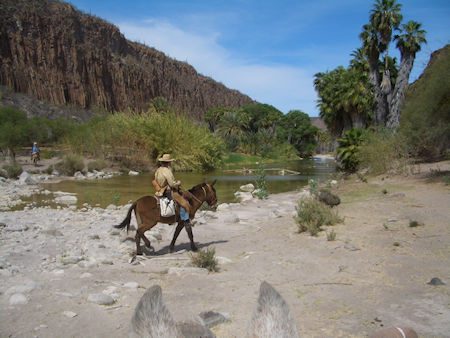
Despite these challenges, the spirit of the ranchos endures. The film showcases the resilience of these remote ranchos, their ability to adapt to changing circumstances while preserving their cultural heritage. By sharing their stories, both McClintocks hoped to preserve the story of the rancheros and to inspire future generations to carry on their legacy.
“I remember one time driving along a great road that goes from Mulegé to Scorpion Bay - it is so isolated and there are these little roads that go off the main road - and thinking what if I broke down here?” said Cody. “But what you don’t realize is that those little roads go to ranchos and they all have radios and if something happens they will find you.” One time he did break down along the road and his truck blew a hose. A rancher stopped and said “Look, I have the same part, I’ll give you mine and I will get another one tomorrow when the junkyard opens.” Where else in the world do you run into people who will literally give you the part off their truck?
Corazón Vaquero is more than just a documentary; it is a love letter to a vanishing way of life. By capturing the essence of the ranchos, the film invites viewers to reflect on the importance of preserving cultural heritage. It is a reminder that the past can inform the future, and that by understanding our roots, we can better navigate the challenges of the modern world.
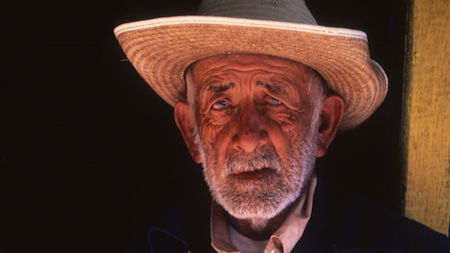
“This was a lifelong coalescence of Baja enthusiasts making a film really about the people we love,” said Cody. “The ‘glue’ for us really is the people - the tortillas and coffee in the morning, their kindness and presence, and just being around the people.”
As McClintock himself reflects, “It’s a place of so many different faces. Because they are so far behind, they’ve jumped ahead.” The ranchers of Baja California have found a way to balance the old and the new, adapting to the challenges of the modern world while holding fast to their time-honored traditions.
In a world that is increasingly dominated by technology and globalization, the ranchos of Baja California offer a glimpse into a simpler time. They are a reminder of the importance of human connection, the power of tradition, and the enduring spirit of the human race.
Relevant links:
Watch the documentary. For further information contact Erin.